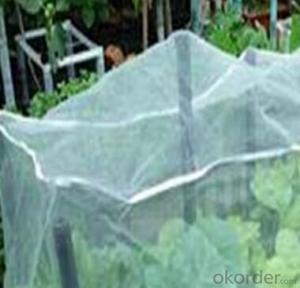Plastic bird netting is a fantastic solution for gardeners who want to protect their plants from pesky feathered friends. Whether you’re dealing with pesky pigeons or aggressive crows, bird netting can be a lifesaver for your garden. In this article, we’ll explore the benefits of using plastic bird netting, how to install it, and tips for maintaining it to keep your garden looking its best.
The Benefits of Plastic Bird Netting
Plastic bird netting offers several advantages over other types of bird deterrents. It’s lightweight, easy to install, and can be used in various garden settings. Here are some of the benefits you can expect from using plastic bird netting:
– Durability: Made from high-quality plastic materials, bird netting is designed to withstand harsh weather conditions, ensuring long-lasting protection for your garden.
– Visibility: The transparent or semi-transparent nature of plastic netting allows you to maintain an unobstructed view of your garden while keeping birds at bay.
– Versatility: It can be used to cover a wide range of garden areas, from small vegetable patches to large fruit trees.
– Cost-Effectiveness: Compared to other bird control methods, plastic bird netting is an affordable option that provides excellent value for money.
How to Install Plastic Bird Netting
Installing plastic bird netting is a straightforward process. Follow these steps to ensure a successful installation:
1. Measure Your Garden Area: Before purchasing netting, measure the area you want to cover to determine the size and quantity needed.
2. Choose the Right Netting: Select a netting with small enough mesh to prevent birds from entering but large enough not to obstruct plant growth.
3. Secure the Netting: Use sturdy posts or frames to hold the netting in place. Make sure it’s tight and secure to prevent birds from pushing through.
4. Overlap the Edges: Overlap the edges of the netting by at least 12 inches to ensure complete coverage and prevent birds from finding gaps.
5. Check Regularly: Regularly inspect the netting for any damage or gaps and repair as necessary.
Tips for Maintaining Plastic Bird Netting
To keep your plastic bird netting in top condition, follow these maintenance tips:
– Clean Regularly: Remove debris such as leaves and bird droppings to prevent damage to the netting and maintain its effectiveness.
– Inspect for Damage: Regularly check the netting for signs of wear and tear, and repair or replace it as needed.
– Avoid Exposure to Chemicals: Keep the netting away from harsh chemicals that could damage its integrity.
– Store Properly: When not in use, store the netting in a dry, cool place to prolong its lifespan.
Personal Stories: How Plastic Bird Netting Saved My Garden
I’ll never forget the summer when a flock of crows decided to make a feast out of my carefully tended vegetable garden. The devastation was heart-wrenching. That’s when I discovered plastic bird netting. Since then, it has become an indispensable part of my gardening toolkit. Here’s how it has helped me and others:
– Protecting Crops: One gardener shared how bird netting saved her tomato crop from being pecked to pieces by hungry birds.
– Preserving Fruit Trees: Another gardener told a story of how netting protected his apple trees from a swarm of pesky starlings.
– Creating a Sanctuary: A community garden used bird netting to create a safe haven for plants, free from the threat of bird damage.
The Emotional Impact of Bird Damage on Gardeners
Gardening is a labor of love, and seeing your hard work destroyed by birds can be disheartening. The emotional impact of bird damage on gardeners is real and should not be underestimated. Here’s how plastic bird netting can help:
– Peace of Mind: Knowing that your garden is protected gives you peace of mind and allows you to enjoy your gardening activities without constant worry.
– Pride in Your Garden: With bird netting in place, you can take pride in your garden’s appearance, knowing that it’s safe from feathered intruders.
– Less Stress: Fewer bird-related problems mean less stress and more time to focus on the joy of gardening.
Conclusion
Plastic bird netting is a simple yet effective solution for gardeners seeking to protect their plants from birds. It’s a practical, affordable, and efficient way to ensure that your garden thrives without the interference of our feathered friends. So, the next time you find yourself facing a bird problem in your garden, consider giving plastic bird netting a try. It might just save your garden and your sanity!

